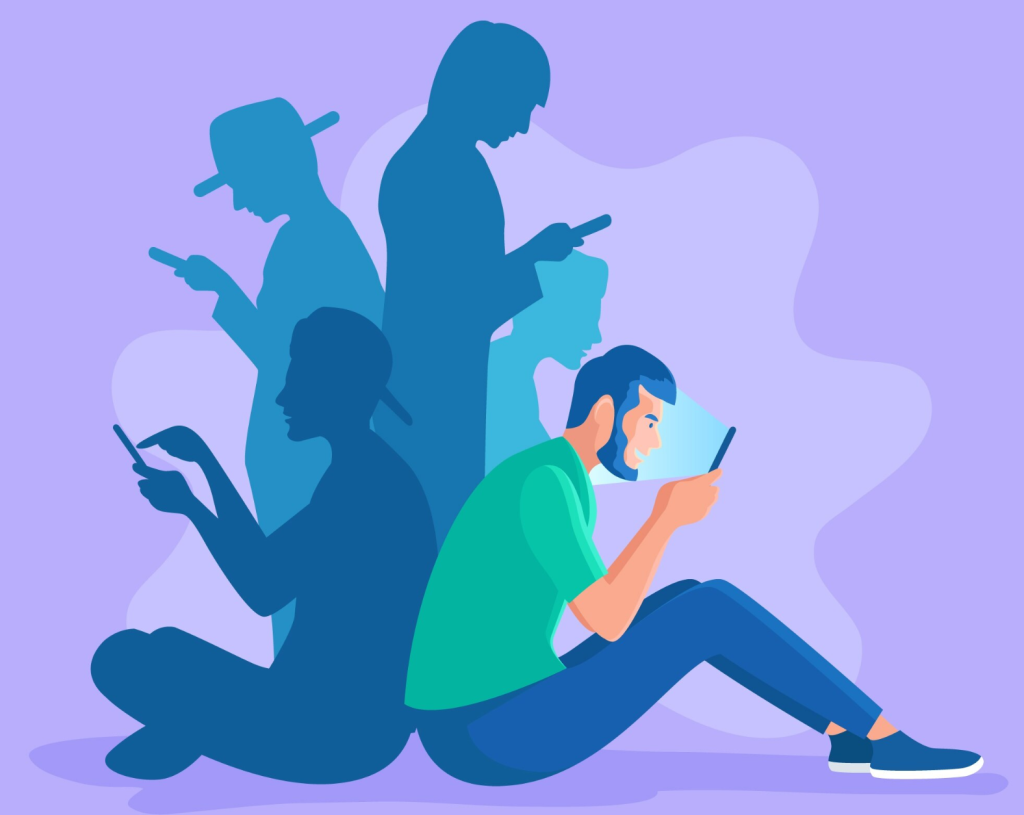Every scroll, swipe, and click you make online leaves more than a digital footprint—it leaves an imprint on how you think, speak, and form opinions offline. While we often treat online reading as separate from “real life,” the truth is far more intertwined. From political leanings to lifestyle choices, your digital diet of articles, tweets, videos, and posts is shaping the way you perceive the world every day.
But how exactly does what you read online seep into your offline behavior and beliefs? And why does it matter more than ever in today’s fast-paced media landscape? In this article, we’ll unpack the science, psychology, and real-world implications behind the idea that your online reading habits are not just influencing you—they’re reprogramming you.

The Digital Diet: You Are What You Read
We’ve all heard the saying “You are what you eat,” but when it comes to information, the same principle applies: You are what you read. The information we consume online becomes part of our inner dialogue, affecting:
- The topics we care about
- The language we use in conversation
- The opinions we express
- The decisions we make
According to a Pew Research Center study (2023), over 53% of U.S. adults regularly get their news from social media. That number is even higher among Millennials and Gen Z. But unlike traditional media, social platforms personalize content, reinforcing existing beliefs and narrowing exposure to differing viewpoints.
The Psychology Behind Online Influence
The way our brains process digital information is surprisingly powerful—and, at times, subconscious.
1. Confirmation Bias
We naturally seek out content that aligns with our beliefs. Algorithms reinforce this by feeding us more of the same, making our worldview feel validated and self-contained.
Offline Impact:
We become more resistant to opposing views, reducing empathy and critical thinking in face-to-face conversations.
2. Availability Heuristic
Our brains tend to judge the likelihood of events based on how easily examples come to mind. If you frequently read about crime online, for instance, you may overestimate its prevalence in your city.
Offline Impact:
You may become more anxious, pessimistic, or risk-averse in daily decisions.
3. Social Proof
Online articles often include likes, shares, or comment counts—subtle cues that tell our brains this is important or popular.
Offline Impact:
You might adopt opinions or talking points simply because they appeared widely accepted, not necessarily because you deeply analyzed them.
Echo Chambers and Filter Bubbles
Coined by internet activist Eli Pariser, a filter bubble occurs when algorithms isolate us from information that challenges our worldview. This is especially true with news curation apps and personalized content feeds.
“The filter bubble is the invisible shift in what we see online—away from balance and toward personalization,” — Eli Pariser
As a result:
- Political polarization increases.
- Cultural stereotypes are reinforced.
- Personal biases go unchecked.
This has profound offline consequences. Studies from MIT Sloan (2022) show that people who consume news in algorithmic environments are more likely to develop strong partisan opinions and feel animosity toward those with different views.
From Read to Belief: The Information Cascade
Ever read something online, shared it with friends, and only later realized it wasn’t accurate? That’s the information cascade effect: when repeated exposure to information (true or false) leads us to accept it as fact simply because others believe it.
How It Happens:
- You read a trending opinion piece or tweet.
- It gets shared by people you trust.
- It “feels” true, so you internalize it.
- It becomes part of your casual conversation, subtly influencing your stance on an issue.
How to Take Back Control of Your Opinions
The good news? You don’t have to be a passive consumer of online information. With a few mindful adjustments, you can ensure your online habits support a well-rounded, more informed perspective offline.
1. Diversify Your Sources
Read news from outlets with differing political and cultural perspectives. Try pairing sources like BBC and Al Jazeera, or The New York Times and The Wall Street Journal.
2. Practice Intentional Reading
Before clicking, ask:
- Is this a reputable source?
- Is the author presenting evidence or opinion?
- Am I reacting emotionally or logically?
3. Use Fact-Check Tools
Websites like Snopes, PolitiFact, and Media Bias/Fact Check help verify claims quickly and easily.
4. Balance Algorithms With Real Conversations
Talk to people who think differently. Follow content creators and journalists outside your usual bubble.
Final Thoughts: The Line Between Digital and Reality Is Blurring
Your online reading isn’t just entertainment—it’s education, socialization, and identity formation all rolled into one. Every headline you click, every article you finish, and every comment section you scan is reshaping your worldview in subtle but lasting ways.
In a time where misinformation spreads faster than ever, and algorithms tailor our digital experiences, the stakes are high. But with awareness, intentionality, and a bit of critical thinking, you can reclaim the power to shape your opinions—on your terms.
References
- Pew Research Center (2023). News Use Across Social Media Platforms in 2023. Online Reading https://www.pewresearch.org/internet/2023/07/19/news-use-across-social-media-platforms-in-2023/
- MIT Sloan (2022). How social media polarizes us—and how to fix it. https://mitsloan.mit.edu/ideas-made-to-matter/how-social-media-polarizes-us-and-how-fix-it
- Eli Pariser (2011). The Filter Bubble: What the Internet Is Hiding from You. https://www.eli.pariser.org






